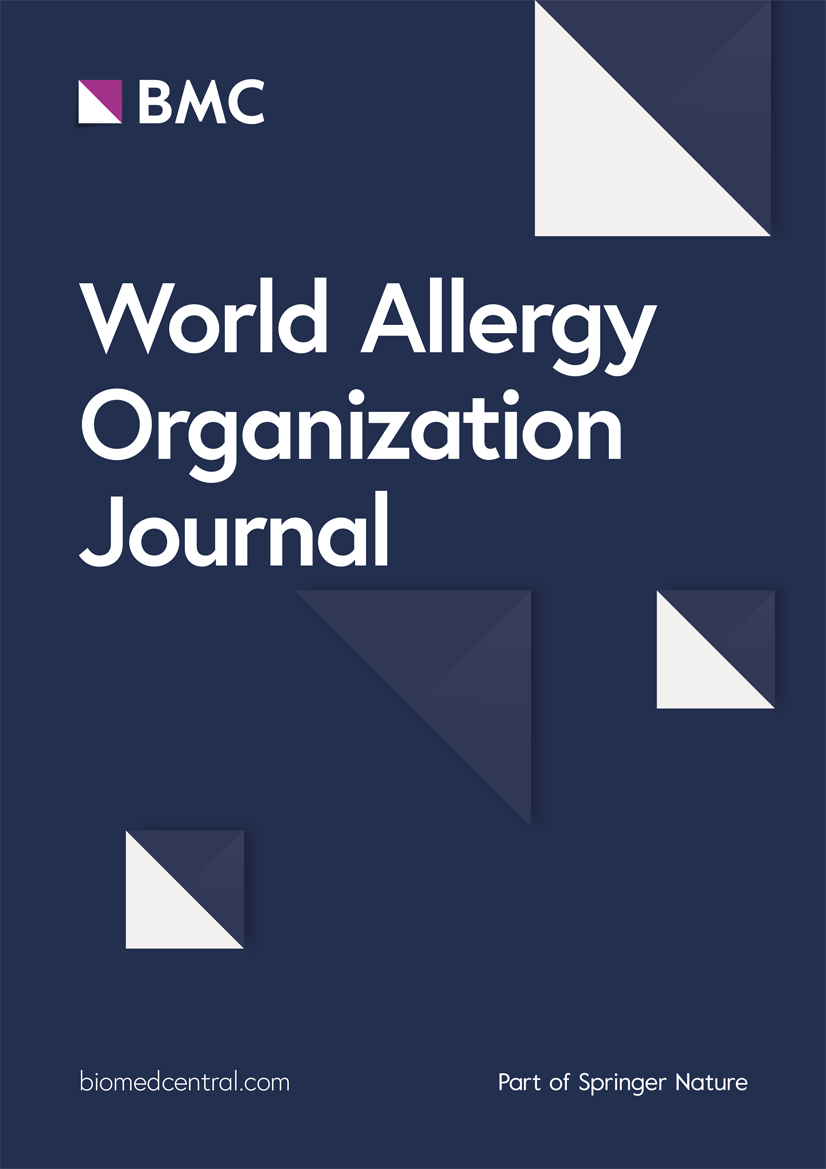Enhanced allergic Eustachian tube response in surfactant protein D knockout mice induced by ovalbumin
IF 4.3
2区 医学
Q2 ALLERGY
引用次数: 0
Abstract
Background
Allergic reactions have been widely recognized as closely associated with the development of Eustachian tube dysfunction (ETD). However, the precise pathophysiological mechanisms remain unclear, and effective models to elucidate the role of allergic responses in ETD are lacking. Surfactant protein D (SPD), an important immune defense factor in the Eustachian tube (ET), not only reduces surface tension but also exhibits anti-adhesion and inflammation-regulating properties. Nevertheless, the role of SPD in allergic inflammation of the ET has not been fully explored.
Objective
This study aimed to investigate the morphological and functional changes in the ET induced by ovalbumin under SPD gene deficiency and to explore the underlying mechanisms.
Methods
Experimental models were established using C57 mice with different SPD genotypes, divided into control groups (WT-PBS and SPD-KO-PBS) and allergic groups (WT-OVA and SPD-KO-OVA). Allergic symptoms were recorded following intraperitoneal OVA injection and nasal challenges, and serum total IgE levels were measured. Histological methods were used to evaluate the number and morphological changes of eosinophils in the ET. Immunostaining was performed to analyze the secretion of Muc5b and Muc5ac. ET function was assessed by measuring passive opening pressure (POP) and comparing active clearance of negative pressure (ACNP). Mucociliary clearance (MCC) was evaluated using small-animal imaging techniques. Exogenous SPD was administered intranasally to SPD-KO-OVA mice to evaluate therapeutic effects.
Results
Allergic mice exhibited significant inflammatory features, including increased sneezing frequency, elevated serum IgE levels, eosinophil infiltration in the ET mucosa, goblet cell hyperplasia, and abnormal mucin secretion. Meanwhile, ACNP and MCC functions were significantly impaired. Compared with the WT-OVA group, SPD-KO-OVA mice demonstrated more severe eosinophil infiltration, thickened ET mucosa, enhanced mucus gland secretion, elevated POP, and further impaired ACNP and MCC functions, with excessive mucus accumulation in the middle ear cavity. Abnormal overexpression of Muc5ac and Muc5b may further exacerbate OVA-induced ET dysfunction. Intranasal SPD treatment significantly attenuated mucosal inflammation, reduced eosinophil infiltration and mucin production, and restored ACNP function in SPD-KO-OVA mice.
Conclusions
SPD plays a critical role in regulating allergic inflammation and protecting ET function. Its deficiency exacerbates OVA-induced inflammation and functional impairment of the ET, while exogenous SPD administration ameliorates tissue inflammation and restores ACNP efficacy. These findings highlight SPD as a therapeutic target for allergic ETD.
卵清蛋白诱导表面活性蛋白D敲除小鼠变应性耳咽管反应增强
研究背景:过敏反应与耳咽管功能障碍(ETD)密切相关。然而,确切的病理生理机制尚不清楚,并且缺乏有效的模型来阐明过敏反应在ETD中的作用。表面活性剂蛋白D (SPD)是耳咽管(ET)中一种重要的免疫防御因子,它不仅能降低耳咽管的表面张力,还具有抗粘附和调节炎症的作用。然而,SPD在ET变应性炎症中的作用尚未得到充分探讨。目的探讨SPD基因缺失情况下卵清蛋白诱导ET的形态学和功能变化,并探讨其机制。方法采用不同SPD基因型的C57小鼠建立实验模型,分为对照组(WT-PBS和SPD- ko - pbs)和过敏组(WT-OVA和SPD- ko - ova)。在腹腔注射OVA和鼻腔刺激后记录过敏症状,并测定血清总IgE水平。采用组织学方法观察ET中嗜酸性粒细胞的数量和形态变化,免疫染色法分析Muc5b和Muc5ac的分泌情况。通过测量被动开口压力(POP)和比较主动负压清除率(ACNP)来评估ET功能。应用小动物成像技术评估纤毛粘膜清除率(mucocile clearance, MCC)。对SPD- ko - ova小鼠鼻内给予外源性SPD,评价其治疗效果。结果过敏小鼠表现出明显的炎症特征,包括打喷嚏频率增加、血清IgE水平升高、ET黏膜嗜酸性粒细胞浸润、杯状细胞增生和粘蛋白分泌异常。同时ACNP和MCC功能明显受损。与WT-OVA组相比,SPD-KO-OVA小鼠嗜酸性粒细胞浸润加重,ET粘膜增厚,粘液腺分泌增强,POP升高,ACNP和MCC功能进一步受损,中耳腔粘液积聚过多。Muc5ac和Muc5b异常过表达可进一步加重ova诱导的ET功能障碍。在SPD- ko - ova小鼠中,经鼻SPD治疗可显著减轻粘膜炎症,减少嗜酸性粒细胞浸润和粘蛋白产生,恢复ACNP功能。结论spd在调节变应性炎症和保护ET功能中起重要作用。它的缺乏加剧了ova诱导的炎症和ET的功能损伤,而外源性SPD可以改善组织炎症并恢复ACNP的功效。这些发现强调SPD是过敏性ETD的治疗靶点。
本文章由计算机程序翻译,如有差异,请以英文原文为准。
求助全文
约1分钟内获得全文
求助全文
来源期刊

World Allergy Organization Journal
Immunology and Microbiology-Immunology
CiteScore
9.10
自引率
5.90%
发文量
91
审稿时长
9 weeks
期刊介绍:
The official pubication of the World Allergy Organization, the World Allergy Organization Journal (WAOjournal) publishes original mechanistic, translational, and clinical research on the topics of allergy, asthma, anaphylaxis, and clincial immunology, as well as reviews, guidelines, and position papers that contribute to the improvement of patient care. WAOjournal publishes research on the growth of allergy prevalence within the scope of single countries, country comparisons, and practical global issues and regulations, or threats to the allergy specialty. The Journal invites the submissions of all authors interested in publishing on current global problems in allergy, asthma, anaphylaxis, and immunology. Of particular interest are the immunological consequences of climate change and the subsequent systematic transformations in food habits and their consequences for the allergy/immunology discipline.
 求助内容:
求助内容: 应助结果提醒方式:
应助结果提醒方式:


